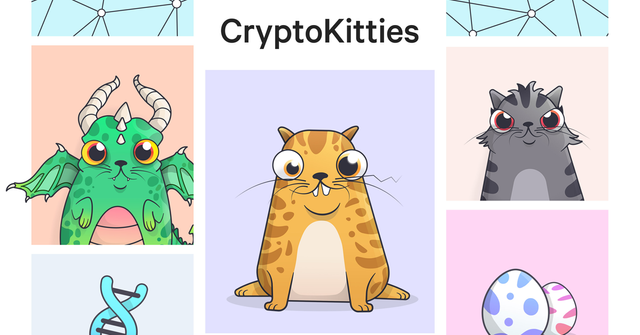This is how to create Ethereum Smart Contracts

mkdir my-eth-chain
cd my-eth-chain
gedit myGenesis.json
{
"config": {
"chainId": 15,
"homesteadBlock": 0,
"eip155Block": 0,
"eip158Block": 0
},
"difficulty": "0x400",
"gasLimit": "0x2100000",
"alloc": {
"7a69b359e86893efa3d9732e4c65ced51567edd0":
{ "balance": "0x1337000000000000000000" }
}
}
chainid: this provides a way to send transactions that work on ethereum without working on ETC (ethereum classic) or the Morden testnet. EIP 155 suggests following chainid values for different networks: ethereum mainnet (1), morden /expanse mainnet (2), ropsten (3), rinkeby (4), rootstock mainnet (30), rootstock testnet (31), kovan (42), ethereum classic mainnet (61), ethereum classic testnet (62), geth private chains (1337 by default). In our example we have used 15, which is not used by any of these networks.
homesteadBlock: the value 0 indicates, it is using ethereum homestead release. Homestead is the 2nd major ethereum release — and couple of days back on 16th Oct, 2017, ethereum did a hard fork to move to the byzantium release.
eip155Block: the value 0 indicates, this block supports EIP (ethereum improvement proposal)155. EIPs describe standards for the ethereum platform, including core protocol specifications, client APIs, and contract standards.
eip158Block: the value 0 indicates, this block supports EIP (ethereum improvement proposal)158.
difficulty: a value corresponding to the difficulty level applied during the nonce discovery of this block. In this blog I explain how the difficulty is calculated in ethereum, in detail.
gasLimit: gas is the internal pricing for running a transaction or contract in ethereum. Each instruction sent to the Ethereum Virtual Machine (EVM) to process a transaction or smart contract costs a specific amount of gas. If the required amount of gas is not provided to the transaction, it will fail before completion. When you do any ethereum transaction, you specify a gas limit — that is the maximum gas all the operations corresponding to that transaction can consume. The gasLimit parameter in the block specifies, the aggregated gasLimit from all the transactions included in the block.
alloc: this allows to pre-allocate ether to one or more accounts from the genesis block. In the above genesis block, the pre-allocation is done to the account we created at the begining.
geth --mine --rpc --networkid 1999 --datadir <path-to-data-directory>
(CHANGE THE 1999 VALUE)
networkid: network identifier of this ethereum network. You pick a value you want. For example: olympic (0), frontier (1), morden (2), ropsten(3).
mine: enables mining.
rpc: enables an HTTP-RPC server. Wallet applications can connect to this mining node over http.
rpcaddr: specifies the HTTP-RPC server listening interface (default: “localhost”)
rpcport: specifies the HTTP-RPC server listening port (default: 8545)
rpcapi: specifies the API’s offered over the HTTP-RPC interface (default: “eth,net,web3”)
--rpcapi "web3,eth"
--rpccorsdomain "*"
geth --mine --rpc --networkid 1999 --datadir /path/to/data/dir console
geth --datadir /path/to/data/dir attach ipc:/path/to/data/dir /geth.ipc
> eth.accounts
["0x7a69b359e86893efa3d9732e4c65ced51567edd0"]
> eth.getBalance("0x7a69b359e86893efa3d9732e4c65ced51567edd0")
1.295e+21
Download MetaMask
https://metamask.io/
> personal.unlockAccount( "0x7a69b359e86893efa3d9732e4c65ced51567edd0","password")
> var sender = "0x7a69b359e86893efa3d9732e4c65ced51567edd0";
> var receiver = "0xA9f28458eE1170F285440990c196c1592D3a73f5"
> var amount = web3.toWei(1, "ether")
> eth.sendTransaction({from:sender, to:receiver, value: amount})
> eth.getBalance("0xA9f28458eE1170F285440990c196c1592D3a73f5")
1000000000000000000
geth --mine --rpc --rpccorsdomain "*" --networkid 1999 --datadir <path-to-data-directory>
To connect, remix to our private network, we need to change the Environment to Web3 Provider, under the tab Run. When you do this change, remix will prompt you to specify the Web3 Provider Endpoint — set the value http://localhost:8545. Unless you have changed the port explicitly, the default mining node will start on the port 8545.
pragma solidity ^0.4.11;
contract Hello {
// a string variable
string public greeting;
// the function with the same name as the class is a constructor
function Hello(string _greeting) {
greeting = _greeting;
}
// change the greeting message
function setGreeting(string _greeting) {
greeting = _greeting;
}
// get the greeting message
function greet() constant returns (string _greeting) {
_greeting = greeting;
}
}
Click the Details button
Now we can deploy our smart contract to our private blockchain. Under the Run tab, make sure you have the right ethereum account selected, and then the right gas limit is specified. You can keep gas price and value as zero.
> personal.unlockAccount( "0x7a69b359e86893efa3d9732e4c65ced51567edd0","password")
Click "Create"
Then you have the beginning of your First Smart Contract.

Guide to create a Crypto Kitties type Game
I like this post.. Carry on brother mar. I am new in #steemit please #follow me back.
Downvoting a post can decrease pending rewards and make it less visible. Common reasons:
Submit
https://steemit.com/@princeshamim
Downvoting a post can decrease pending rewards and make it less visible. Common reasons:
Submit
nice post :)
done to follow and upvote :)
Downvoting a post can decrease pending rewards and make it less visible. Common reasons:
Submit
i upvoted ur post now back to my post
Downvoting a post can decrease pending rewards and make it less visible. Common reasons:
Submit
I want to send 5000 Tokens for 1 ETH and for that reason I added that line: "unitsOneEthCanBuy = 5000".
But my problem is i have complately forgot about decimals! My decimal is 18 so i think i should have write 50 instead of 5000.
Does anyone know how to fix it? i have already deployed, verified and published my smart contract.
Downvoting a post can decrease pending rewards and make it less visible. Common reasons:
Submit